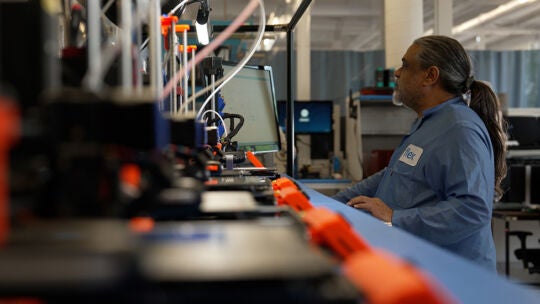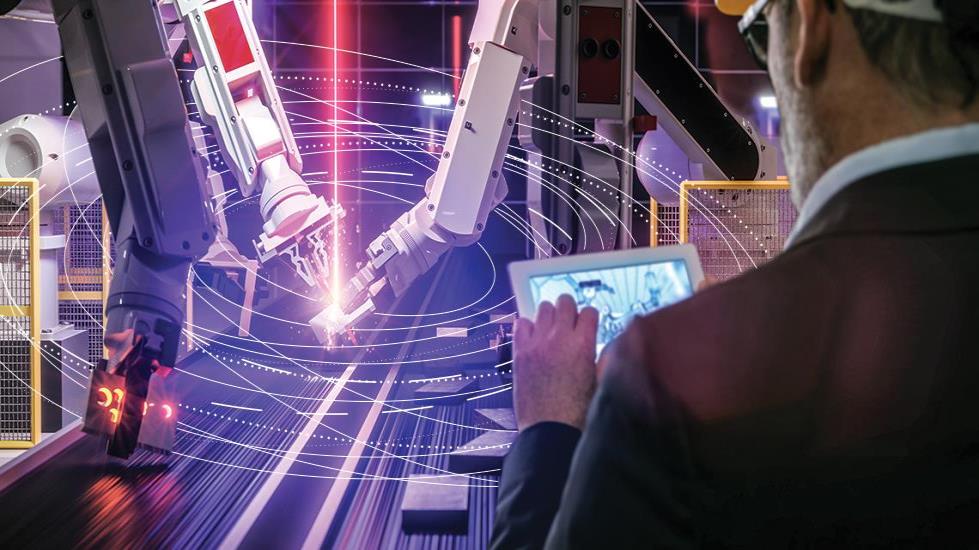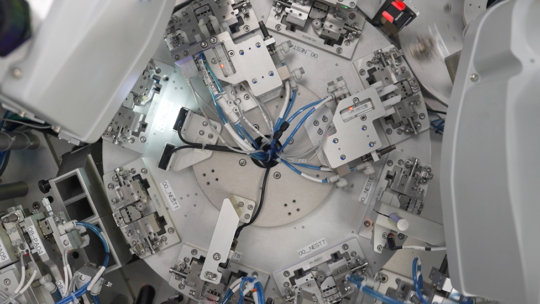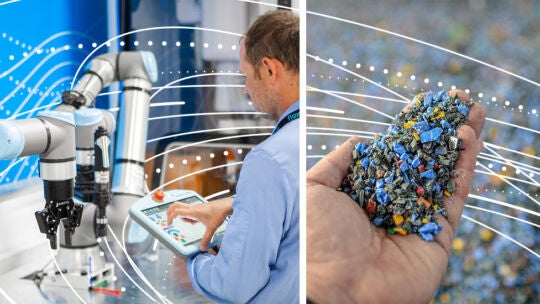

Over the past decade, Industry 4.0 technology has promised new levels of efficiency, quality, and sustainability in manufacturing.
But the true test came in 2020, when organizations had to rethink operational models, combat unpredictable delays and shortages, and ensure the health and safety of staff. Companies with gaps in their digital investments struggled with siloed production and blurred supply chain visibility — leading to an uptick in digital transformation investments last year.
Learn more about how Industry 4.0 is driving advanced manufacturing in our webinar.
Since the beginning, we’ve invested in a focused portfolio of Industry 4.0 technologies that have now been recognized by the Manufacturing Leadership Awards and the World Economic Forum’s Global Lighthouse Network (GLN). In 2021, we received three MLA awards for our speed, scale and simulation capabilities. Additionally, our factory site in Althofen, Austria was admitted into the GLN in recognition of our adoption and deployment of Industry 4.0 technologies.
In order to succeed in a new era of work, companies must design and engineer intelligence, flexibility, and sustainability into both the things they make and the processes for making them for maximum resilience. These five technologies are must-haves that we continue to invest in to transform both the shop and top floor moving forward.
1. Smart automation and robotics
Automation and robotics have proved invaluable in creating more distance between employees on the factory floor during the pandemic — but their benefits are far more wide-ranging. Cobots, mobile robots, and other automation solutions have increased throughput while freeing up employees for more value-added tasks. These machines perform the tasks that are too difficult or strenuous to perform repeatedly. They also create new career advancement opportunities for employees and generally make work more enjoyable.
We use our knowledge of smart automation to optimize production and reduce downtime for our customers. By optimizing investments, productivity, and costs, we integrate smart automation into existing equipment and factories, deploying fast, customized lines in-region to increase value.
2. Digitization
When machines share data through IIoT sensors, you gain insights. Advanced analytics powered by artificial intelligence (AI) and machine learning (ML) can help predict the root cause of failures or even prevent machine failure before it happens — creating a closed feedback loop and more control over your operations.
Digitizing the factory through a combination of sensors, edge computing, and cloud solutions yields massive amounts of data. To derive the most business value from digitization efforts, we’ve established best practices for gathering, managing, and analyzing data. Our best practices focus on achieving desired outcomes, data democratization for quick action, and training. Our digital manufacturing system provides real-time data that accelerates time-to-market and improves quality and reliability for our customers.
3. Advanced Simulation
Simulation is another key technology helping organizations achieve greater speed and agility as they develop and deliver products. An integrated approach to simulation allows you to test production lines, products, and more without affecting time, resources, or capital in the real world.
For example, we use our real-time advanced simulation expertise to offer customers a virtual view of the factory at the start of a project. By applying multiple logic layers, we can run “what-if” scenarios against a variety of factors using a digital twin of physical factory operations — accelerating product startup, improving yields, and reducing ramp up costs for our customers.
Simulation is also helping us build the future of digital manufacturing by visualizing it. 3D models allow us to analyze how humans and robots interact, review potential layouts for the future of work — and tweak automated processes with additional human expertise.
4. Augmented and virtual reality
Augmented and virtual reality (AR/VR) applications are key building blocks for the future of work, allowing employees to collaborate remotely, set up lines quickly, and increase throughput. For example, AR/VR accelerates knowledge sharing across our global operations. Different factories can share best practices, insights, and feedback — all while being thousands of miles apart.
But training is just one of many opportunities to accelerate manufacturing with AR/VR technology. We use AR in six areas across our global operations:
- Remote assistance
- Service and repair
- Training
- Logistics and order fulfillment
- Business development
- People and resources
In the instance of remote assistance, for example, an operator fixing a machine on the line can connect with experts across the globe using augmented reality, displaying his field of vision for them to view and guide appropriately.
5. Additive manufacturing
During the design and development phase of a new product, rapid prototyping allows teams to test innovations and materials, prepare for scaled manufacturing, and stay on track with time-to-market targets. Additive manufacturing speeds up the process by allowing teams to quickly prototype tools, fixtures, and spare parts.
We use our full suite of in-house industrial additive manufacturing services to streamline prototyping and product customization while reducing time and effort. Through state-of-the-art software, hardware, and materials, we help our customers stay nimble while developing new products.
Lead the way with an experienced partner
From connecting machines to overcoming physical barriers, increasing speed, and anticipating disruptions, technologies like smart automation, advanced simulation, digitization, AR/VR, and additive manufacturing are helping companies deliver innovative products in a rapidly changing world. But they also introduce new complexities that require a strategic approach. The right partner can address those complexities and help you take advantage of advancements to bring new ideas to life.
Since the beginning, we’ve invested in a focused portfolio of advanced manufacturing capabilities and technologies to lead Industry 4.0. We can help you achieve new levels of efficiency, quality, and sustainability as you deliver your next innovation.



